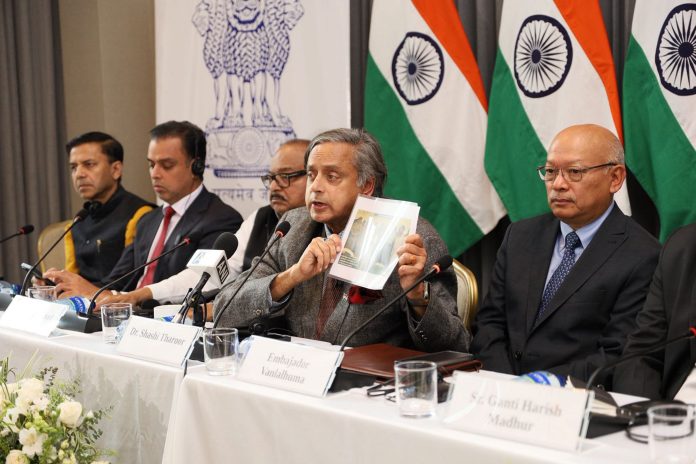
Seven all-party delegations, comprising 51 Indian MPs and eight former diplomats, are touring 33 countries to promote India’s zero-tolerance stance against terrorism following Operation Sindoor. The outreach began on May 23, 2025, spanning 10 days. Led by MPs Shashi Tharoor, Ravi Shankar Prasad, Baijayant Panda, Sanjay Jha, Shrikant Shinde, Kanimozhi Karunanidhi, and Supriya Sule, the delegations include diverse political voices.
In This Article:
Coordinated by the Ministry of External Affairs, the groups are engaging world leaders, diasporas, and think tanks to counter Pakistan’s narrative post the Pahalgam attack. Key destinations include the US, UK, Russia, Saudi Arabia, UAE, South Africa, and Japan, covering UN Security Council members and the EU.
A Unified Response to Terrorism
Following the April 22, 2025, Pahalgam terror attack that killed 26 people, India launched Operation Sindoor, targeting terror camps in Pakistan and PoJK on May 7. To reinforce its global stance, the government dispatched seven multi-party delegations to 33 capitals, starting May 23, 2025. These delegations, blending ruling NDA and opposition INDIA bloc leaders, aim to project national unity against Pakistan-sponsored terrorism. Parliamentary Affairs Minister Kiren Rijiju called it “One mission. One message. One Bharat,” emphasizing India’s resolve. The inclusion of articulate leaders like Congress’s Shashi Tharoor and AIMIM’s Asaduddin Owaisi ensures robust messaging, with each group visiting 4–5 countries, supported by diplomats like Taranjit Singh Sandhu and Harsh Shringla.
Strategic Destinations and Key Engagements
The delegations’ destinations are strategic: Group 1 (Baijayant Panda) visited Saudi Arabia, Kuwait, Bahrain, and Algeria, engaging Gulf nations’ leaders like Saudi’s Adel Al-Jubeir to highlight shared anti-terrorism goals. Group 2 (Ravi Shankar Prasad) targeted Europe (UK, France, Germany, EU), securing France’s solidarity against terrorism as a “cancer.” Group 3 (Sanjay Jha) reached Southeast Asia (Japan, South Korea, Singapore), with Salman Khurshid noting “unqualified support” in Tokyo. Group 4 (Shrikant Shinde) covered UAE and African nations like DR Congo, while Group 5 (Tharoor) visited the Americas (US, Panama, Guyana), paying tributes at the 9/11 memorial. Group 6 (Kanimozhi) engaged Russia and Eastern Europe, and Group 7 (Supriya Sule) connected with Qatar, Egypt, and South Africa, leveraging diaspora influence.
Political Dynamics and Criticisms
The initiative showcases rare bipartisan unity, with 31 NDA and 20 non-NDA MPs, but Congress criticized the selection process, as only one of their four recommended names (Anand Sharma) was included, with Tharoor’s inclusion sparking debate due to his perceived pro-government remarks. Jairam Ramesh accused the BJP of “cheap political games,” yet Congress joined to uphold national interest. Pakistan’s counter-campaign, led by Shehbaz Sharif, aims to challenge India’s narrative, but India’s diaspora, described as a “force multiplier,” amplifies its message, especially in Bahrain and UAE.
Global Impact and Future Implications
The delegations have secured support from nations like Saudi Arabia, Italy, and South Africa, reinforcing India’s anti-terror stance amid Pakistan’s 17-month UNSC tenure. By drawing parallels between Pakistan’s terror tactics and ISIS’s “takfiri” ideology, leaders like Owaisi aim to isolate Islamabad globally.
-By Manoj H



